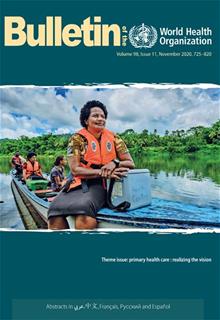
WHO guidelines
The development of global guidelines ensuring the appropriate use of evidence represents one of the core functions of WHO.
A WHO guideline is defined broadly as any information product developed by WHO that contains recommendations for clinical practice or public health policy. Recommendations are statements designed to help end-users make informed decisions on whether, when and how to undertake specific actions such as clinical interventions, diagnostic tests or public health measures, with the aim of achieving the best possible individual or collective health outcomes.
The Guidelines Review Committee ensures that WHO guidelines are of a high methodological quality and are developed through a transparent, evidence-based decision-making process. Guidelines are subject to a rigorous quality assurance process that helps to ensure that each and every published guideline is trustworthy, impactful and meets the highest international standards.

/pub-covers/malaria-guideline-cover-eng.tmb-144v.png?sfvrsn=bb6df870_11)


